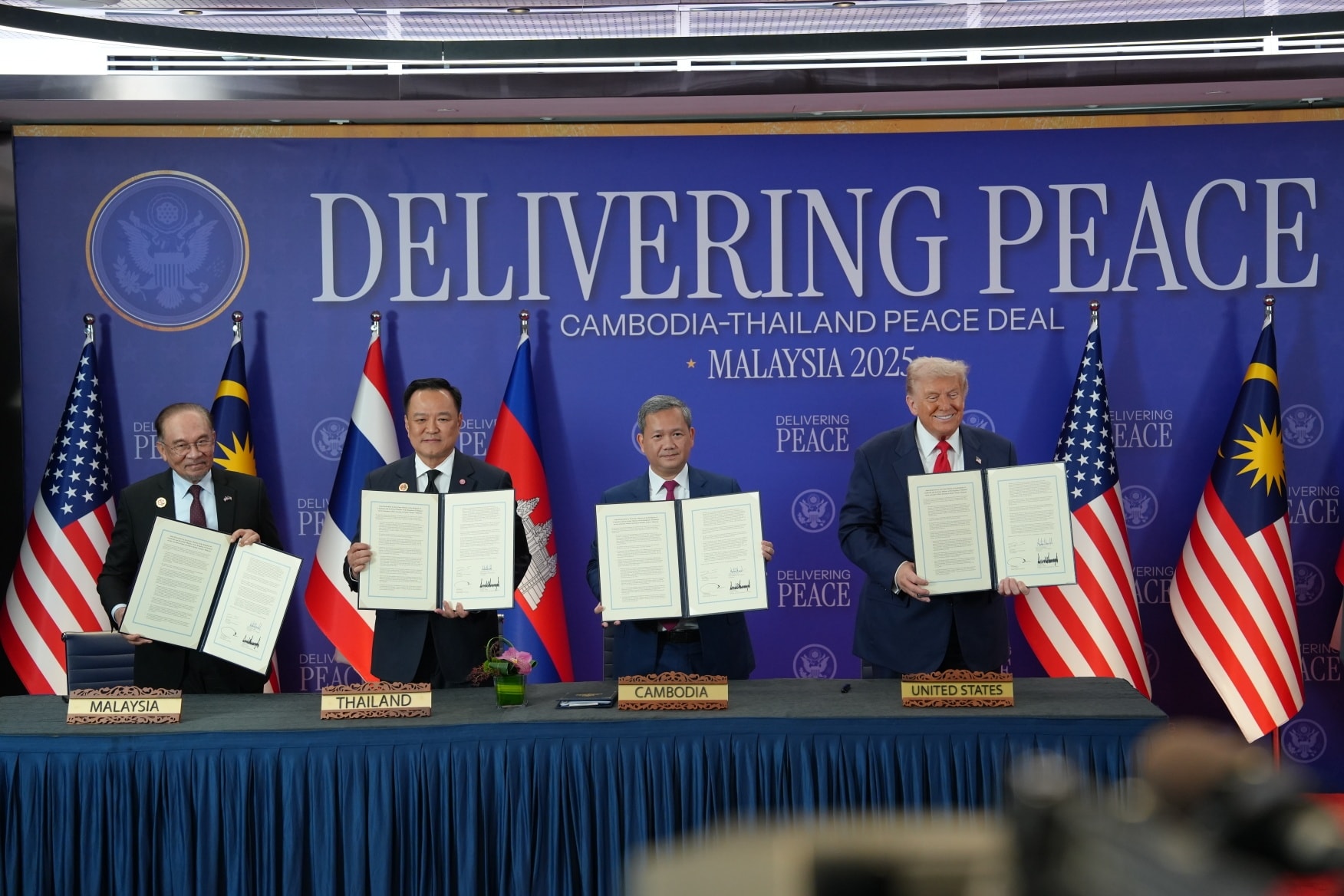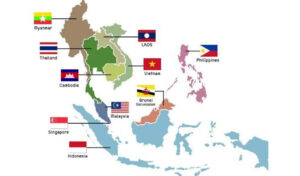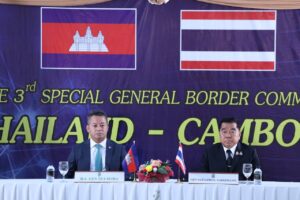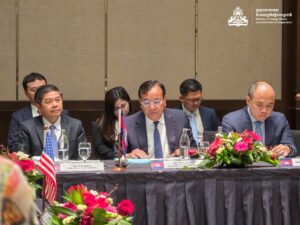Peace at the Tip of the Diplomatic Pen: The Early Harvest of Prime Minister Hun Manet’s ‘Silent but Not Still’ Strategy”
 Peace at the Tip of the Diplomatic Pen: The Early Harvest of Prime Minister Hun Manet’s ‘Silent but Not Still’ Strategy”
Peace at the Tip of the Diplomatic Pen: The Early Harvest of Prime Minister Hun Manet’s ‘Silent but Not Still’ Strategy”
The end of gunfire along the Cambodia–Thailand border, achieved through the power of diplomacy, marks a major political achievement for Cambodia. It not only preserved peace but also transformed long-standing border tensions into a new, noteworthy chapter of diplomatic progress on the international stage.
This peace agreement not only ended the bloodshed between the two neighboring countries but also symbolized the official beginning of a new era of peaceful relations, diplomacy, and cross-border cooperation between Cambodia and Thailand.
Prime Minister Hun Manet’s “Silent but Not Still” strategy represents a foreign policy approach grounded in practical outcomes rather than rhetorical influence or empty promises designed merely to attract attention or gain popularity.
Just a few months ago, Cambodia faced serious military pressure from Thailand’s aggressive nationalist actions and border violations, while also enduring domestic and diaspora criticism from Cambodians who did not yet understand the nature of the “Silent but Not Still” strategy. Only now do people across all social classes recognize and praise the Prime Minister’s skillful, effective, and intelligent handling of the border dispute.
By choosing diplomacy over military retaliation, Cambodia demonstrated a refined and flexible diplomatic approach—calm but deeply strategic—guided by the spirit of peace and executed with precision on the international stage.
The peace agreement, signed under the facilitation of Malaysia’s Prime Minister as ASEAN chair and witnessed by U.S. President Donald Trump, illustrates Cambodia’s ability to transform a bilateral dispute into a matter of ASEAN, international, and even U.S. concern. It is a testament to the success of using foreign policy instruments instead of weapons to end conflict peacefully.
The peace achieved in Kuala Lumpur, Malaysia, is therefore not only a product of Cambodia’s diplomatic capability but also of ASEAN’s enduring commitment to regional peace—built on the principle of maintaining harmony among neighboring nations capable of coexisting through mutual cooperation. The participation of Malaysia and the United States also reflects international support for peace-building in Southeast Asia.
At this stage, Cambodia has demonstrated its soft power through diplomacy, intellect, and patience—three elements that surpass the power of arms. This reflects the essence of modern political leadership: the understanding and will to resolve conflicts through dialogue and mutual national interest.
The end of gunfire is not the end of the conflict, but the beginning of a shared future and peaceful coexistence as good neighbors. The Cambodia–Thailand border could evolve into a zone of economic, social, and cultural development—if both sides remain faithful to the peace agreement signed on October 26, 2025.
The “Silent but Not Still” strategy proves that quiet diplomacy can be more powerful than the sound of gunfire. When diplomacy writes the final line, that marks the true end of conflict—achieved without the loss of even a single life or bullet.
In summary, this represents the early harvest of Prime Minister Hun Manet’s leadership—both as the new generation of the “Samdech Techo–Thipadei” era and as the architect of a groundbreaking approach never before used by Cambodia in resolving disputes, especially with neighboring countries. His “Silent but Not Still” strategy has achieved great success, bringing peace to the nation and the homeland—something long yearned for by the Cambodian people—through the historic peace agreement between Cambodia and Thailand, facilitated by Malaysia as ASEAN Chair and witnessed by U.S. President Donald Trump on October 26, 2025.
This is not only the preservation of domestic peace but also of harmony with neighboring nations—an exceptional value that embodies the highest national priority, widely supported, respected, and cherished by the Cambodian people.
By: Pin Vichey – Political Science Scholar




